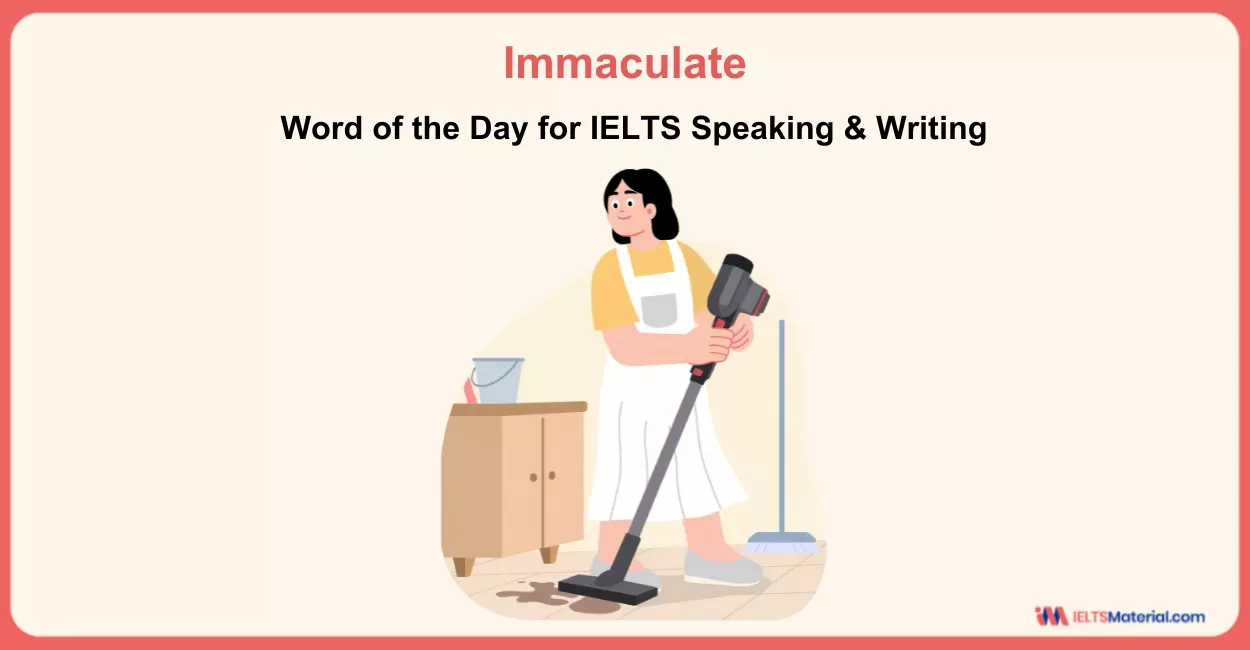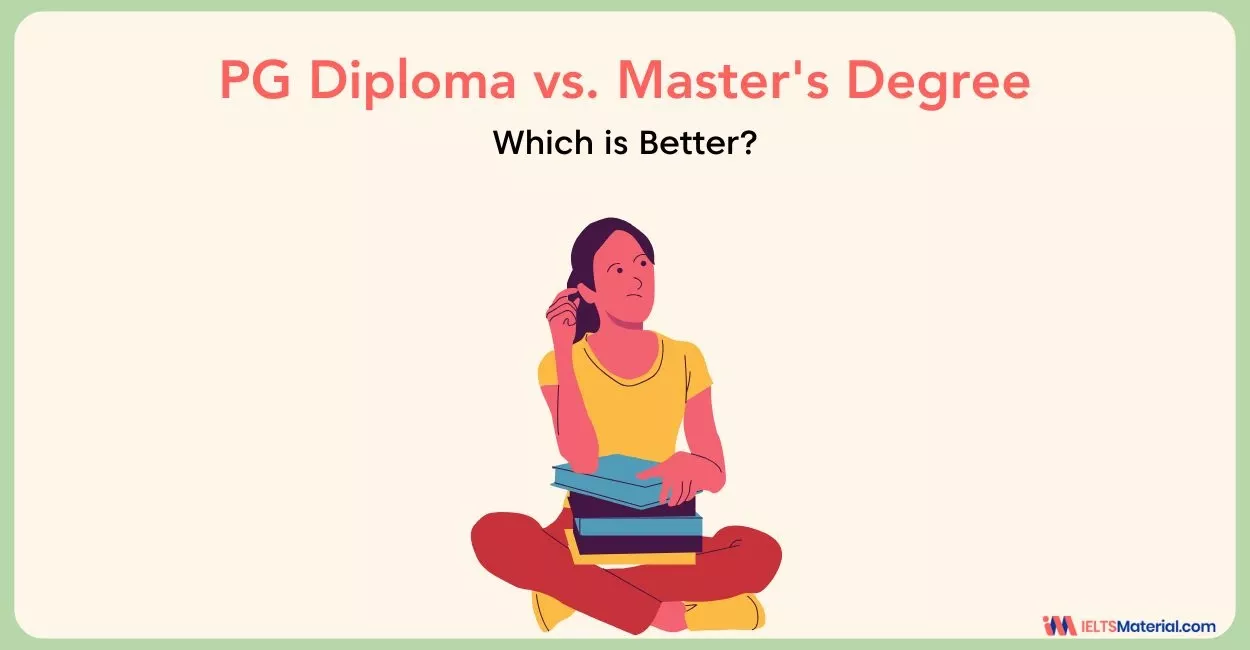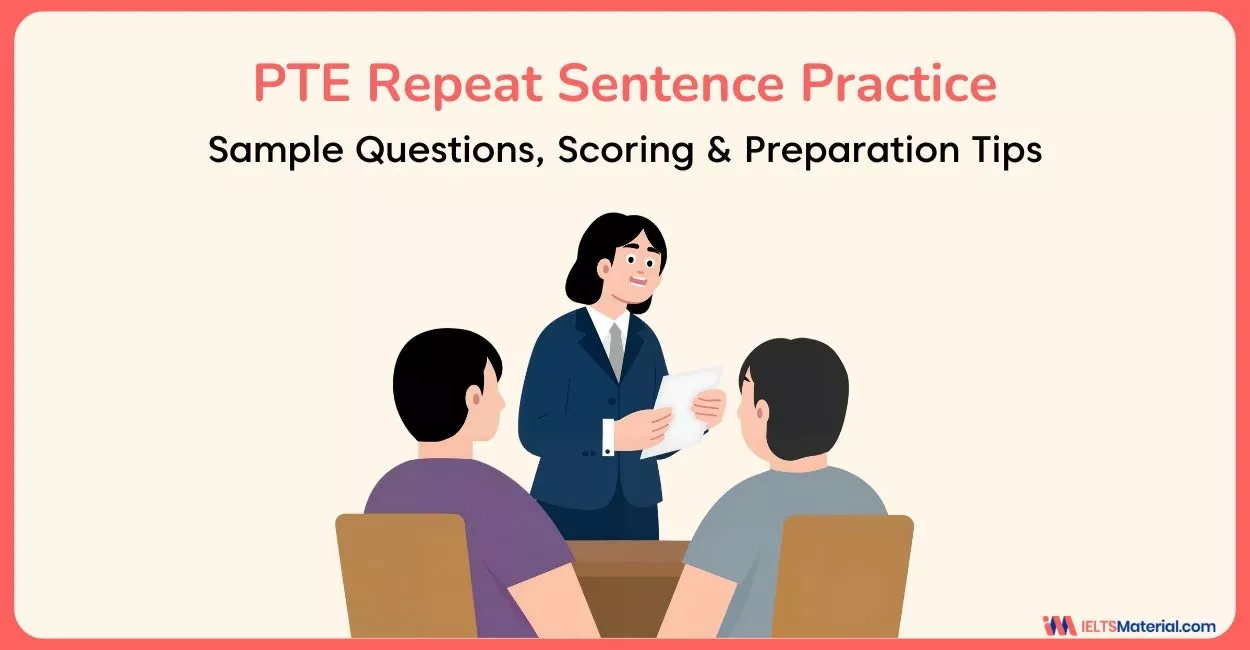PG Diploma vs. Master's Degree: Which is Better?
5 min read
Updated On
-
Copy link
Choose a Master’s Degree if you want depth, research, or academic progression. Opt for a PG Diploma if you are looking for focused, career-driven education with lower cost and time commitment. Learn more about PG diploma vs. Masters degree in this blog.
Table of Contents

Limited-Time Offer : Access a FREE 10-Day IELTS Study Plan!
Everything is pretty confusing when you decide on your next step after graduation. People who commonly choose to get further educational qualifications, either get their Master’s degree, or some prefer earning a Post Graduate diploma (PGD). However, since there is a lack of understanding about the difference between a Masters degree and a PG diploma, you need to understand them before choosing any one of them.
In this blog, we will discuss PG Diploma vs. Master's Degree, learn what they are individually, the cost of pursuing each of them, the top courses, and finally, guide you to make the right decision. Let’s get started!
What is a Postgraduate Diploma (PGD)?
A postgraduate diploma is an academic program at the graduate level that can be pursued immediately after undergraduate studies. Usually, postgraduate diploma programs are vocational and focus on obtaining practical skills and knowledge.
In India and other countries, PG Diplomas are often vocational, designed for quick, practical training. While some are equivalent to master’s-level content, they are shorter and usually don't require a thesis
What is a Master’s Degree?
A Master’s Degree is a postgraduate academic or professional qualification obtained after completing a bachelor's degree. As a result, entry to the courses typically requires a bachelor's and may include test scores, like the GRE or GMAT.
In the U.S., master’s programs (e.g., MA, MS, MBA) typically require 1–3 years of full‑time study and include coursework, research, and possibly a thesis. Degrees are categorized as:
- Academic (MA, MS)
- Professional (MBA, MEd, MFA, MPA)
- Research-focused, culminating in a thesis or project
It is important to be aware that both a Master’s degree and a Postgraduate Diploma enhance career prospects, but if you want to obtain a postgraduate qualification without committing to the research and length of a Master’s degree, a Postgraduate Diploma may be the right option for you.
Achieve your IELTS score for hassle-free admission to Masters or PG diploma!
Book a Free Demo class and learn from the experts!
Difference between a Master’s degree and a PG Diploma
There are multiple factors to consider before going for either of them. So, let us look at the table below that talks about the major differences, like duration, cost, value, course curriculum, admission requirements, career prospects, and work permit.
|
Criteria |
Master’s Degree |
Postgraduate Diploma (PG Diploma) |
|---|---|---|
|
Duration |
|
|
|
Value |
|
|
|
Course Curriculum |
|
|
|
Admission Requirements |
|
|
|
Career Prospects |
|
|
Popular Master’s and PG Diploma Degrees
Here is a table comparing popular Master’s and PG Diploma programs across key sectors, so you can align your choice with your academic interests or career goals:
|
Field |
Popular Master’s Degrees |
Popular PG Diploma Courses |
|---|---|---|
|
Business & Finance |
MBA, Master in Finance, MCom |
PG Diploma in Business Analytics, Financial Planning |
|
Engineering & Tech |
MTech, MSc in AI, MS in Cybersecurity |
PG Diploma in Data Science, Embedded Systems |
|
Health Sciences |
Master of Public Health, MPharm, MSc in Nursing |
PG Diploma in Clinical Research, Health Informatics |
|
Education & Teaching |
Master of Education (MEd), MA in TESOL |
PG Diploma in Early Childhood Education, Instructional Design |
|
Arts & Humanities |
MA in History, MA in Philosophy |
PG Diploma in Journalism, Content Creation |
|
Computer Science & IT |
MS in CS, MSc in Software Engineering |
PG Diploma in Cloud Computing, Mobile App Development |
|
Media & Design |
Master in UX Design, MFA in Visual Arts |
PG Diploma in Animation, Graphic Design |
Grab admission to PG diploma or master's with your English proficiency!
Sign up for our FREE online classes for IELTS!
Cost Comparison: Master’s vs. PG Diploma
Before choosing between a Master’s and a PG Diploma, it’s essential to understand the financial implications. Master’s degrees generally require a longer commitment, both in time and money, while PG Diplomas offer a more budget-friendly and faster route into the workforce.
Given below is a comparison between the cost of a PG diploma vs. master’s degree.
|
Cost Factor |
Master’s Degree |
PG Diploma |
|---|---|---|
|
Tuition (International) |
$15,000 – $60,000/year (varies by country) |
$8,000 – $25,000 total |
|
Tuition (India) |
₹1,00,000 – ₹6,00,000/year |
₹50,000 – ₹2,50,000 total |
|
Duration |
1–3 years |
6 months – 1 year |
|
Living Expenses (Global) |
$10,000 – $20,000/year |
Lower due to shorter stay |
|
Research/Thesis Costs |
Often required (additional resources needed) |
Not required |
|
Return on Investment (ROI) |
Higher long-term ROI, especially for MBAs |
Faster ROI; low investment, quick industry entry |
Join a FREE online webinar for IELTS preparation and achieve success!
PG Diploma vs. Master's Degree: When Should You Choose?
Still confused about which one you should choose between PG diploma and Master’s degree? Check out the table below that presents when you should choose either of them depending on your requirements.
|
Choose a Master’s Degree if: |
Choose a PG Diploma if: |
|---|---|
|
|
To conclude, a PG diploma may focus on one subject and often have a more practical component. So, by the time you graduate, you will have a qualification and work experience to go along with it. It can also be much cheaper to study than a degree. However, a Master’s is a more qualified and valued degree. Therefore, both of them are great choices, and there is no better option in general. It is best to compare them based on your current resources, eligibility, and career plans and choose what is best for you!
Useful Links:
- Top Universities in USA for MS in 2026: Programs, Eligibility, Admission Process, Jobs and Salary
- Masters in Canada: Top Universities, Courses, Fees and More
- Masters in Ireland: Top Courses, Eligibility, Top Universities & Fees
- Which Universities in Australia Accept IELTS 5.5 Band for Masters?
- MS in Singapore - Eligibility, Programs, Fees, & Scholarships
- Free IELTS Practice Tests 2025 | Practice IELTS Mock Test Online
Frequently Asked Questions
Is a PG Diploma better than a Masters?
Is PGD equivalent to Masters?
Does a PG Diploma have value?
Is a Postgraduate Diploma in management equivalent to a master's?
Can I do a PhD after a PG Diploma?
Which is better for immigration: PG Diploma or Master’s?
Explore IELTS related articles

Start Preparing for IELTS: Get Your 10-Day Study Plan Today!
Explore other IELTS Articles

Kasturika Samanta

Haniya Yashfeen
Recent Articles

Nehasri Ravishenbagam

Nehasri Ravishenbagam

Haniya Yashfeen







Post your Comments